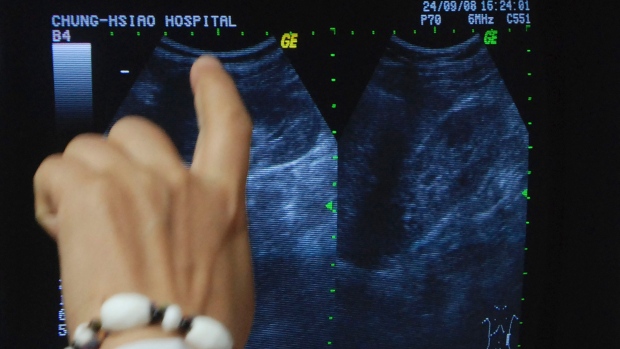
If you are a man and are least interested in going to the doctor for those little ailments you have, its time you took notice. According to experts areas like cancer, heart disease and other lifestyle related diseases affect men two times more than women. This disparity is also seen in the national health programmes that focus mostly on communicable diseases and on children and women. ‘Men’s Health remains neglected and is not a focus of any national programme as most of them focus on mostly on communicable diseases, child and woman health’, say doctors. ‘The average life span of man is five years shorter than that of a woman in India,’ said Dr Rajeev Sood, head of department of Urology in RML Hospital,
He said cancer, stone disease (like kidney stones etc.) as well as those of heart and life style grip men 2-4 times more than women. To address the issue and discuss health programmes that can be framed for them on a national scale, the Urological Society of India is all set to host the 47th annual conference here from tomorrow.
‘Studies have shown that the incidences of prostate cancer are growing by one per cent every year. A new case occurs every 2.5 minutes and a man dies from prostate cancer every 17 minutes. ‘It has become the second most frequently diagnosed cancer after lung cancer. Of the 7.6 million deaths due to cancer worldwide, one-sixth are caused by prostate cancer,’ said Sood who is organising secretary of USICON 2014. Could you be at risk of suffering from the disease?
The conference aims at enhancing the skills of urologists in the performance of advanced urologic endoscopic surgery. The five-day conference will be attended by over 3000 urologists across India, SAARC countries, US, Europe (UK, France, Germany, Spain) and Australia.
India has a population of over 1.3 billion, but only a handful of Urologists to cater to urological problems. It will also address numerous important issues of national concern like organ donation and urinary genital cancers among others.
The conference will begin with the pre-conference live workshop which will feature robotic and laparoscopic surgeries in 3D. The focus will be the technological advances like Fusion Biopsy and Photodynamic therapy for focal ablation of prostate cancer and pharmacological advances in terms of newer molecules that can be disease altering. Recently scientists also discovered a way to assess the risk of prostate cancer recurring.
Here are some facts about the disease:
One new case of prostate cancer occurs every 2.5 minutes, and a man dies from prostate cancer every 17 minutes.
A non-smoking man is more likely to get prostate cancer than lung, bronchus, colon, rectal, bladder, lymphoma, melanoma, oral and kidney cancers combined.
Because prostate cancer is a relatively slow-growing cancer, the 5-year survival rate for prostate cancer survivours – at all stages – is 98%. The relative 10-year survival rate is 84% and the 15-year survival rate is 56%.
In the West, where a number of celebrities and high profile people have spoken publicly about the disease, awareness has steadily risen. Hollywood stalwarts Robert De Niro andMichael Douglas have undergone treatment for prostate cancer, so have South Africa’s iconic former President Nelson Mandela and former US Secretary of State Colin Powell.
Age, genetic predispositions and diet all seem to have a direct correlation with the risk of prostate cancer. Some studies have also indicated that men with sexually transmitted diseases too, have a higher chance of getting afflicted with prostate cancer.
Of the 7.6 million deaths due to cancer worldwide, one-sixth are caused by prostate cancer which is also today the second most frequently diagnosed cancer type after lung cancer.
In India the awareness about the disease still remains low.
Wondering how you can prevent it? Here are some essential dos and don’ts to help you keep prostate cancer at bay:
Do’s
Exercise: Regular exercise and a constant weight go a long way in fighting diseases, especially prostate cancer. All you need is a brisk walk every day, find out how.
Eat healthy: Include cereals, fish, green leafy vegetables, and green tea into your diet. They help fight the ill effects of anti oxidants and prevent the onset of the disease.
Don’ts
Ignore the symptoms: The signs of prostate cancer are very easy to overlook. Don’t ignore the symptoms. Get then checked as soon as you notice anything amiss. An early diagnosis is the best way to successful treatment.
Eat fatty foods: Avoid red meat (as it contains a lot of fat that can lead to prostate cancer) and sugary and starch rich foods (both these components lead to inflammation and can speed up the process of formation of the cancer). Read about the top 5 ways to prevent the onset of prostate cancer.
Source: health India



